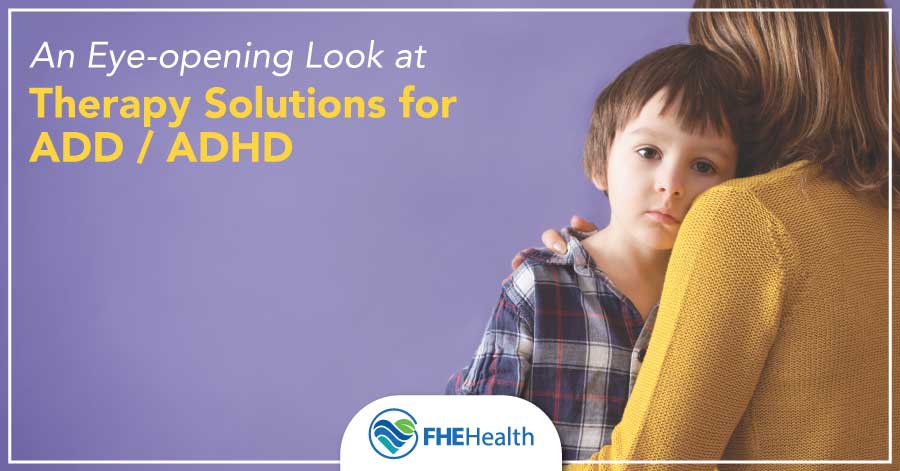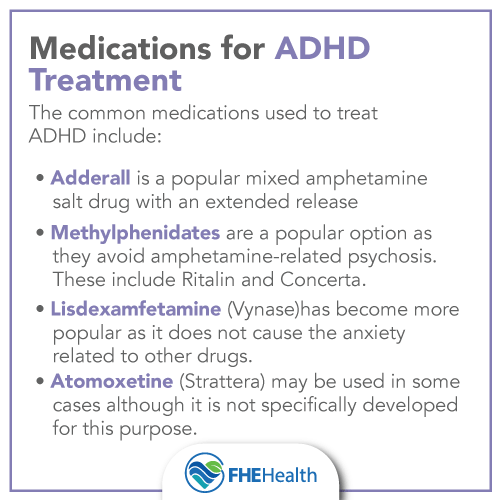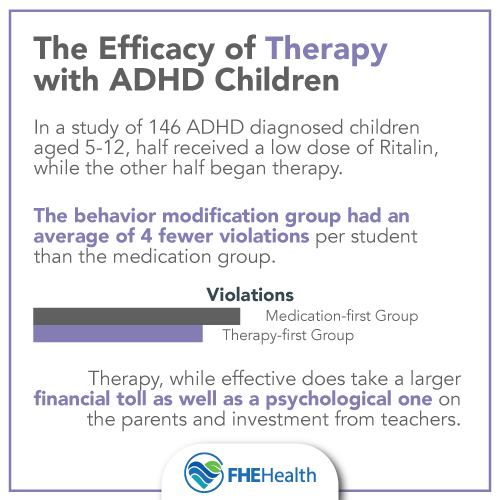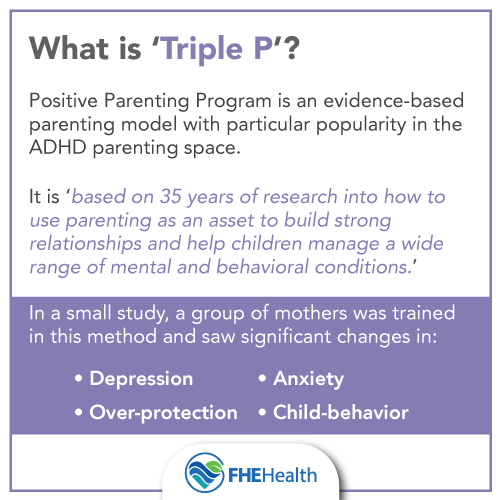
Certain patterns of behavior can be extremely worrying when you observe them in your child. Erratic behavior, impulsive decision-making, hyperactivity and lack of focus can all be indicative of several disorders, but a very likely one is ADHD.
Most parents know that ADHD is a mental disorder that fits loosely in the category of learning disorders or conditions that make it difficult for a person to succeed in an academic setting. ADHD may make your child overly energetic or distracting, and they may be unable to focus in the classroom
ADHD may also hamper a child’s development socially because their impulsiveness and erratic behavior make it difficult to foster relationships with their peers.
Subclasses of ADD/ADHD take different forms, so these may not all be true of every child with the condition, but one thing is for sure: Severe cases of ADHD may present a major disruption in a child’s ability to develop at the same rate as other students, making every treatment decision you make extremely important.
In this piece, we’ll talk about your options to treat ADHD in your child, from medication to therapy, and new evidence-based treatments like Triple P: What they are and which ones are the best fits for your child.
So, Your Child Has Been Diagnosed With ADHD
 Diagnoses of ADHD are not always expected. That is to say, many cases of ADHD are diagnosed during routine pediatric or check-up appointments. This is because some of the signs of emergent ADD/ADHD are similar to normal childhood behavior. Excess energy, irresponsible decisions, lack of focus and other behaviors are indicative of “kids being kids” as much as they are of a mental health condition. This is also why ADHD remains one of the most commonly underdiagnosed (and misdiagnosed) conditions.
Diagnoses of ADHD are not always expected. That is to say, many cases of ADHD are diagnosed during routine pediatric or check-up appointments. This is because some of the signs of emergent ADD/ADHD are similar to normal childhood behavior. Excess energy, irresponsible decisions, lack of focus and other behaviors are indicative of “kids being kids” as much as they are of a mental health condition. This is also why ADHD remains one of the most commonly underdiagnosed (and misdiagnosed) conditions.
If your child is diagnosed in a clinical setting, you’ll be presented with the standard, clinical treatment options. In most case, this means medication.
Overview of Medications for ADHD
There are a variety of medication options for children with ADHD, all of which can be effective based on the specific case and the dose prescribed by the child’s doctor. Here’s a breakdown of the options, courtesy of Johns Hopkins Medicine:
- Traditional treatment of ADHD involves the use of mixed amphetamine salts in a drug called Adderall. This drug and its extended-release version are among the most popular clinical prescriptions to treat ADHD
- Methylphenidates are among a growing list of options for ADHD because they’re not as closely associated with psychosis over long-term use as amphetamines. Some brand names in this category are Ritalin and Concerta.
- Lisdexamfetamine (Vyvanse) has become a popular option in the last decade due to its ability to help the user focus without the side effects of anxiety that some other drugs carry.
- Rarely, atomoxetine (brand name Strattera) is used. This is a non-stimulant SNRI (selective serotonin-norepinephrine reuptake inhibitor) that has been found to be effective in treating ADHD despite not being developed specifically for this purpose.
Are medicinal therapies for ADD/ADHD effective and viable? There’s a reason why drugs like Adderall, Concerta, Ritalin and Vyvanse are so commonly sold to parents. In the right doses, these drugs can have miraculous effects on focus and behavior, but there are still risks. In long-term use, it’s been suggested that drugs like Adderall can cause psychosis, and if the wrong doses of these drugs are prescribed, they may change a child’s personality in unwanted ways.
Non-Medication-Based Treatments for ADHD
 To be clear, ADHD is diagnosed by your child’s doctor, and most medical professionals will see medication-based treatment as the first approach to take, but this doesn’t mean that non-medication-based treatments are less viable.
To be clear, ADHD is diagnosed by your child’s doctor, and most medical professionals will see medication-based treatment as the first approach to take, but this doesn’t mean that non-medication-based treatments are less viable.
There are a wide variety of options in this category, and some are certainly more effective than others. The category includes naturopathic and holistic treatments, traditional therapy and emergent treatments such as evidence-based Triple P (Positive Parenting Program).
Naturopathic Therapies
Because of the wide range of options, the ability of naturopathic and holistic therapies to treat the symptoms of ADHD is difficult to judge. For example, diet and exercise are considered natural ways to treat the condition that some parents have found useful. Other holistic means to improve focus and reduce hyperactivity in children with ADD/ADHD include massage and meditation, which are not scientifically proven to have any effect but are also harmless.
Some parents consider so-called new age treatments that are not backed by science and can be harmful to their children. Most of these remedies involve herbs or essential oils.
Many of these oils are plant-based, so even if they aren’t all dangerous to consume, children may have undiscovered allergies to them, which can pose a significant health risk. Parents shouldn’t use any herbal therapies that are not known to be 100 percent safe.
Traditional Counseling
One-on-one and group therapies have also proven to be successful for children with certain disabilities like ADHD. Many schools have specialized programs for students with conditions such as these, and a major part of these programs is the use of school counselors to help students understand their condition and develop strategies to learn in different ways, overcoming some of the obstacles that come with their disease.
One study compared early intervention and therapy in schools with traditional (medication-based) treatments for students and found that the counseling group was better behaved than the medication group.
Emergent Therapies: Triple P
 At FHE Health, we’ve talked a lot about evidence-based treatments because they continue to be among the most effective. They take what works from a variety of therapeutic options and build on this effectiveness.
At FHE Health, we’ve talked a lot about evidence-based treatments because they continue to be among the most effective. They take what works from a variety of therapeutic options and build on this effectiveness.
One example that we have fully integrated into our treatment programs for addiction and mental health disorders is cognitive behavioral therapy, a type of counseling that helps addicts and those suffering from chronic mental conditions learn more about their condition and find new strategies to handle it.
Triple P, or the Positive Parenting Program, is an evidence-based approach to parenting that has proved viable for a wide variety of behavioral and parenting-related issues, including (but not limited to) ADD/ADHD.
What Is Triple P?
According to the official website of Triple P, positive parenting is based on 35 years of research into how to use parenting as an asset to build strong relationships and help children manage a wide range of mental and behavioral conditions.
Practically, Triple P aims to equip parents with the skills and tools to help their children eventually manage conditions like ADHD without professional help. The core foundation of the program seeks to build strong family bonds and change attitudes through trust and understanding.
Is Triple P Viable in Treating ADD/ADHD?
Studies show that Triple P is extremely promising when it comes to providing positive outcomes for children with ADHD. In a comparison of mothers who were exposed to Triple P for their child and those who weren’t, the Triple P group saw a significant reduction in ADHD symptoms.
This suggests something more widely promising in the area of behavioral health treatment, not just ADHD. New programs that aren’t tailor-made to treat specific conditions are just as effective (if no more so) than those that are, making high-quality ADHD treatment more accessible across geographical and socioeconomic barriers.
Is ADHD Curable?
While ADHD symptoms can be managed, and some patients have successfully scaled down their use of medication and other treatments, ADHD is considered a lifelong condition. At FHE, we don’t treat patients under the age of 18, but we do treat adults with ADHD and patients whose children have ADD/ADHD.






